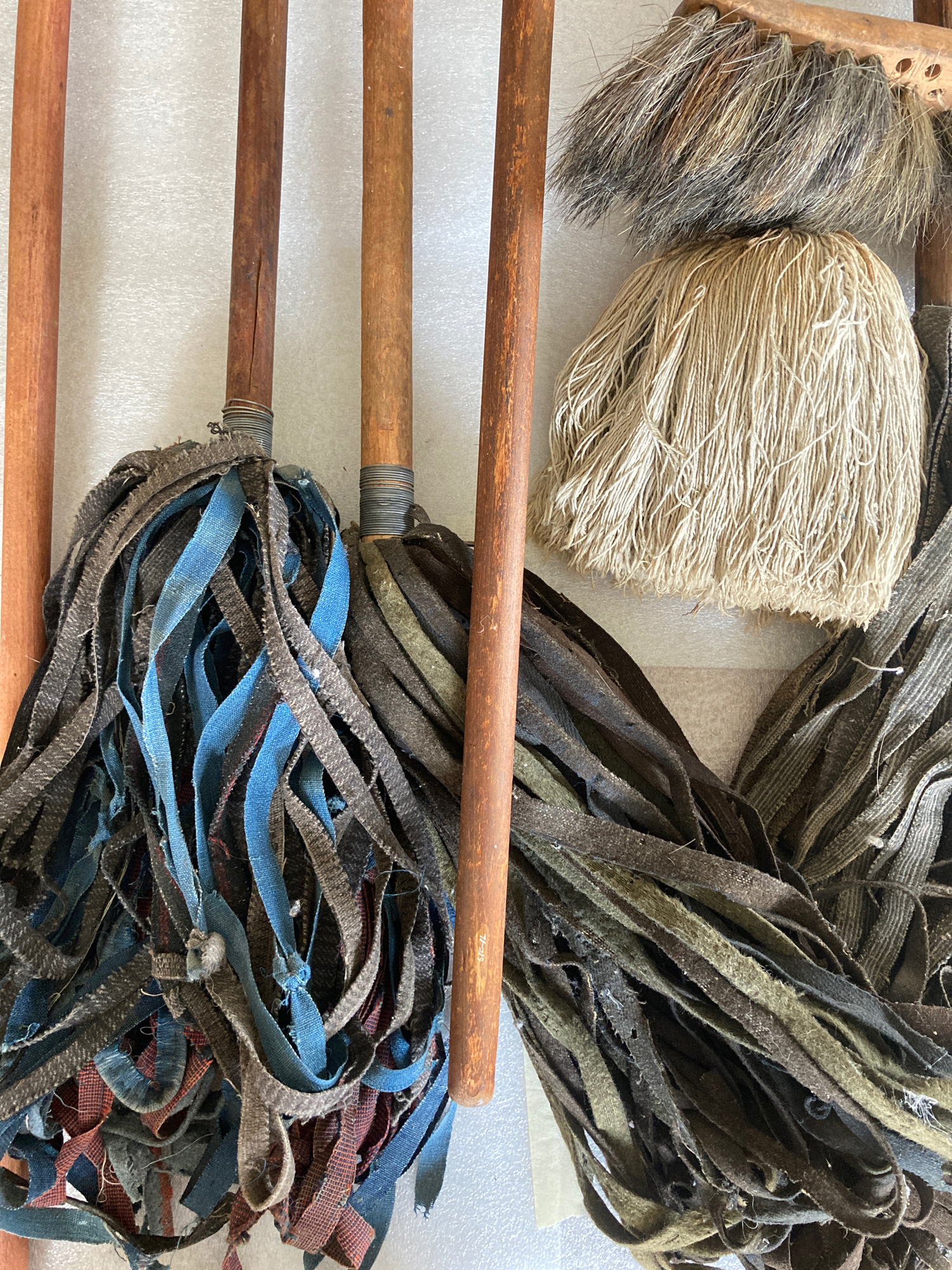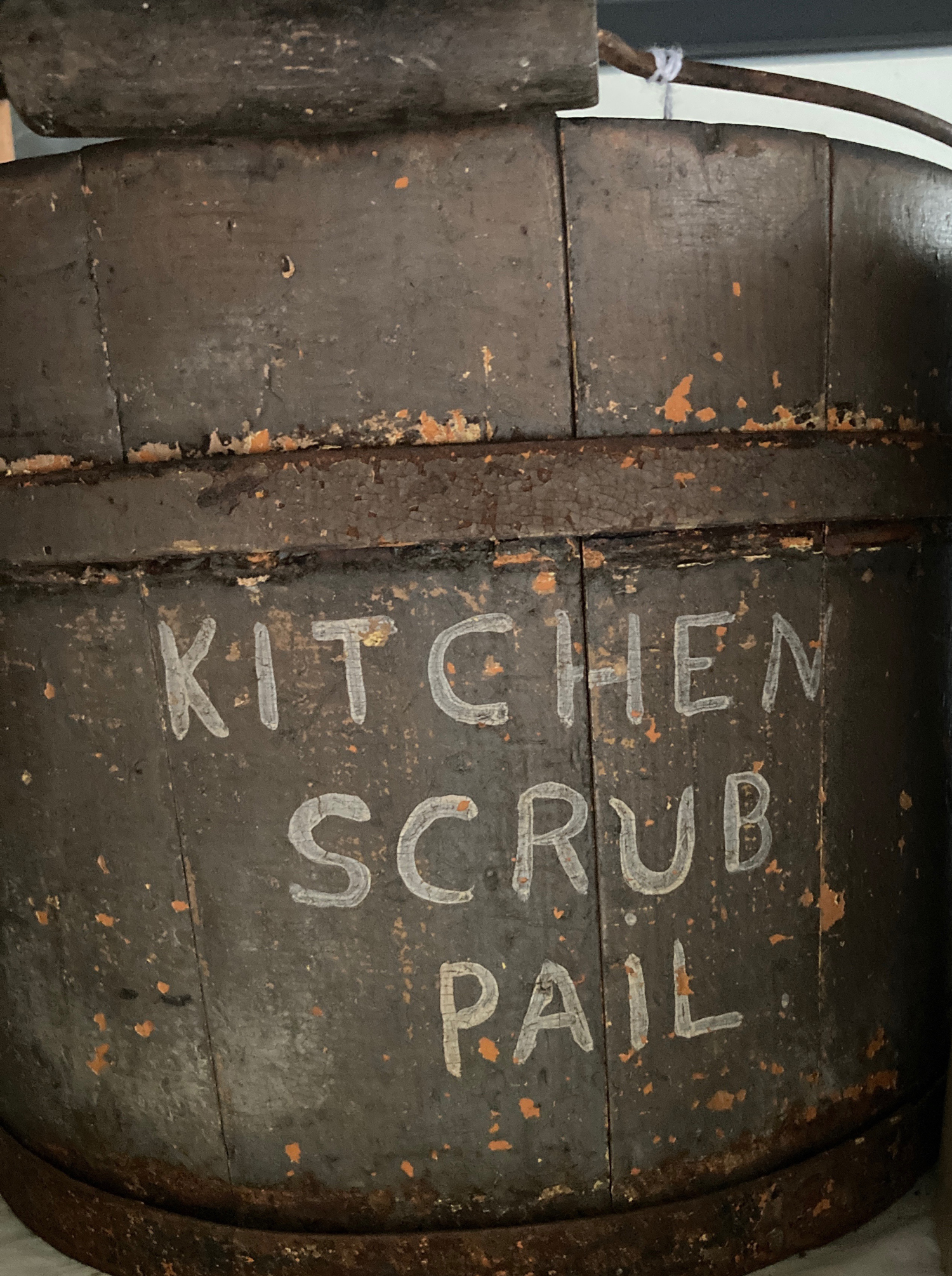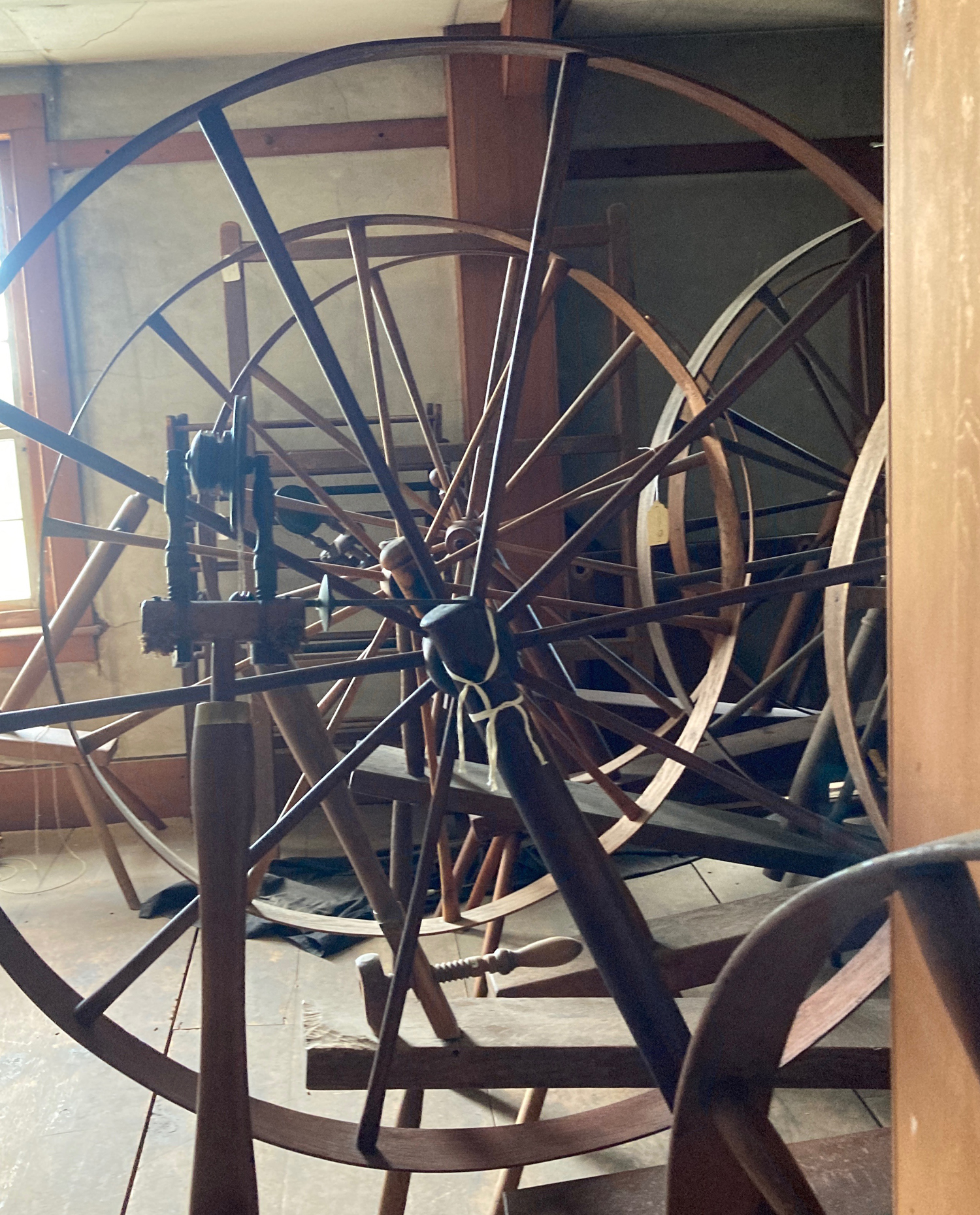hand held
wool handcarders, niddy noddys, spinning wheel parts and wooden mitten molds.
‘tunnel’ bonnet forms for a sister, wide brimmed brethren hat forms and boxes for linen thread.
elegantly curved carpet beaters, irons of all shapes and sizes, sieves and hoes.
potato mashers & bowls, drying racks and butter churns, and rows and rows of wooden buckets.
wide baskets, tall baskets, baskets with handles, baskets without, baskets with woven wire bottoms.
looms and great spinning wheels lined up at the starting gate, ready to spin raw wool into thread.
flat floor brooms, small handheld brooms, and mops with heads made from rags.

the evidence of hands exists in these objects. hands made the tools that allowed other hands to stretch the cloth over the hat form, to spin the wool into thread walking many miles alongside the great wheel, to beat the carpets daily to keep them free of dirt, to mash the potatoes to fill the mouths of the many that worked in the field that day to fill the baskets with tomatoes.

maybe it was the accumulated years of work that overwhelmed me as I stood looking at these objects made by Shaker hands for Shaker hands.

later, this quote found me: “And within Shaker culture, the act of making gift drawings may be aligned with the other modes of labor, such as sweeping, that the Shakers classified as women’s work and sacrilized. Sacrilization socially legitimated these modes of labor by elevating them to expressions of spirituality.”
“Hands to work. Hearts to God.”
[quote from Francis Morin, Heavenly Visions: Shaker Gift Drawings and Gift Songs, (Drawing Center, New York, 2001), pg. 31.